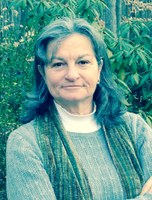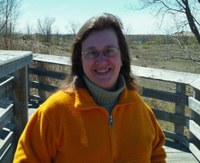Enhancing Our Reach: Assistant Coordinators to Develop Focal-landscape Communities
The LCC will engage local partners and highlight opportunities for collaborative conservation actions across the Tennessee River Basin and in the Western Alleghany forest area and the Susquehanna River watershed. These initiatives will identify shared opportunities to work together for greater effectiveness while initiating long-term planning for the protection of some of the most biologically rich areas in the Appalachians. To assist in these planning efforts, the Cooperative has added two new members to the team; Ginny Kreitler and Mary Davis.
 Mary Davis: Dr. Davis is an ecosystem ecologist with technical expertise in aquatic habitats of the southeastern U.S. Her professional services include scientific and outreach resources for project management, coalition development, and strategic planning. Mary’s areas of scientific interest focus on natural hydrologic regimes of freshwater aquatic habitats and include instream flow requirements and riverine ecosystem functions. She serves as the Coordinator of the Southern Instream Flow Network for the Southeastern Aquatic Resources Partnership (SARP). As an aquatic ecologist with SARP, Mary has worked extensively with the South Atlantic, Gulf Coast Prairie, and Gulf Coastal Plains and Ozarks LCCs on development of regional geospatial resources and models to support instream flow standards and development of aquatic conservation plans. Mary directed the Southern Freshwater Program for eight years for the Southern US Conservation Region of The Nature Conservancy. Mary earned her Masters of Science in fire ecology from Florida State University and doctorate in wetland ecology from the University of Florida.
Mary Davis: Dr. Davis is an ecosystem ecologist with technical expertise in aquatic habitats of the southeastern U.S. Her professional services include scientific and outreach resources for project management, coalition development, and strategic planning. Mary’s areas of scientific interest focus on natural hydrologic regimes of freshwater aquatic habitats and include instream flow requirements and riverine ecosystem functions. She serves as the Coordinator of the Southern Instream Flow Network for the Southeastern Aquatic Resources Partnership (SARP). As an aquatic ecologist with SARP, Mary has worked extensively with the South Atlantic, Gulf Coast Prairie, and Gulf Coastal Plains and Ozarks LCCs on development of regional geospatial resources and models to support instream flow standards and development of aquatic conservation plans. Mary directed the Southern Freshwater Program for eight years for the Southern US Conservation Region of The Nature Conservancy. Mary earned her Masters of Science in fire ecology from Florida State University and doctorate in wetland ecology from the University of Florida.
 Ginny Kreitler: Ginny Kreitler comes to the LCC as its new Assistant Coordinator for the northern LCC region after serving on the LCC’s Steering Committee for two years. Her prior involvement with the Steering Committee and LCC working groups (one advising on the energy impacts project and one considering the use of indicator species) has enabled her to quickly move in to her new role, in which she is helping foster collaboration with conservation practitioners in the northern extent of the LCC, specifically in the states of New York, New Jersey, Pennsylvania, Ohio, West Virginia, Maryland, and Virginia. Previously, Ginny worked for National Audubon, serving on an internal climate change working group, contributing to strategy development on forest priorities, and working with Argonne National Lab to bring habitat data in to new planning tools for the electric and gas sectors. In Pennsylvania, she is a long-time partner in the state land trust community, and partner with watershed protection groups for the last seven years. She now operates a consulting practice from which she continues to provide services to this community.
Ginny Kreitler: Ginny Kreitler comes to the LCC as its new Assistant Coordinator for the northern LCC region after serving on the LCC’s Steering Committee for two years. Her prior involvement with the Steering Committee and LCC working groups (one advising on the energy impacts project and one considering the use of indicator species) has enabled her to quickly move in to her new role, in which she is helping foster collaboration with conservation practitioners in the northern extent of the LCC, specifically in the states of New York, New Jersey, Pennsylvania, Ohio, West Virginia, Maryland, and Virginia. Previously, Ginny worked for National Audubon, serving on an internal climate change working group, contributing to strategy development on forest priorities, and working with Argonne National Lab to bring habitat data in to new planning tools for the electric and gas sectors. In Pennsylvania, she is a long-time partner in the state land trust community, and partner with watershed protection groups for the last seven years. She now operates a consulting practice from which she continues to provide services to this community.






















